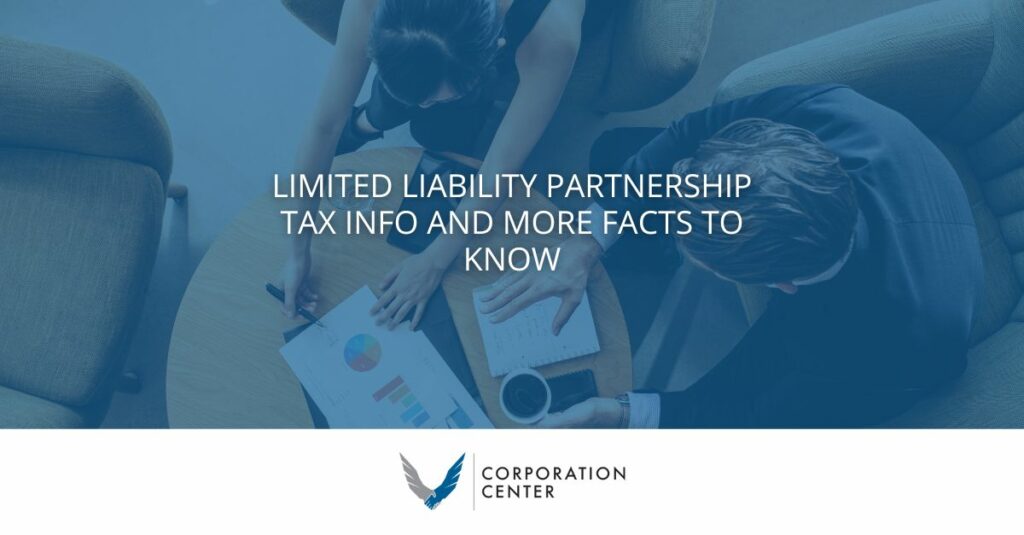Are you a business owner seeking innovative ways to reduce your tax burden? Do you want to pick the right business entity for your specific needs? Limited Liability Partnership (LLP) taxation could be the solution you’ve been looking for. Over the years, The Corporation Center has helped many not just determine which is the right business entity for our clients but also to provide the proper documentation to launch their business entity.
LLP vs. Corporation: A Tax Distinction
Unlike corporations, LLPs are not taxed as a separate entity. Instead, they are treated as partnerships for tax purposes. In a corporation, taxes are paid on the company’s income before dividends are distributed to shareholders.
In contrast, an LLP passes the tax responsibility to individual partners. Each partner is accountable for taxes on their share of the profits and losses, allowing for greater flexibility in managing tax liabilities.
Moreover, the LLP itself does not pay taxes on its income until all costs are covered, eliminating the need for K-1 forms for owners, as they are not considered employees.
Income Distribution in LLPs: A Unique Tax Feature
LLPs stand out due to the distinct tax regulations governing how profits or losses are distributed among members. While other business structures pass income and losses through to shareholders or partners, LLPs record the entire profit or loss on their tax return.
This comprehensive approach enables LLP members to disclose their income or loss on their individual tax returns, simplifying the reporting process compared to other structures.
Personal Liability and Tax Advantages of LLCs
Establishing an LLC not only defines your business entity but also determines its tax treatment. As a “pass-through” organization, an LLC’s members report their share of earnings on personal tax returns.
The LLC structure offers tax advantages, making members personally liable for the company’s income taxes, which can be deducted from their individual returns. Additionally, if the LLC generates no income, members are exempt from filing tax returns, streamlining the administrative process.
No Double Taxation
One notable advantage of LLPs and LLCs over corporations is the absence of double taxation. LLC income is taxed only once at the individual member’s level, unlike corporations where income may be subject to taxation at both the corporate and individual levels.
LLC Flexibility in Tax Classification
LLCs have an added advantage in tax flexibility. A single-member LLC can choose to be taxed as a corporation or a partnership. This flexibility allows for a tailored approach to tax planning. On the other hand, LLPs do not have this option and must adhere to partnership taxation at all times.
Form Your Limited Liability Partnership (or Anything Else) Here
By grasping the nuances of LLP taxation, you can make informed decisions to optimize your tax strategy and contribute to the overall financial health of your business. For businesses contemplating which business entity to form, using a corporate processing service can streamline the process in a variety of ways.
To see all of the ways we can help, click here.






